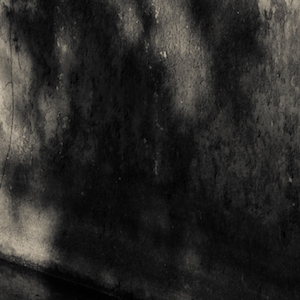Creatures

The last time I saw my father I was on my way to work. It was barely 6 a.m. and the sky had blushed three shades of pink. This was my favorite time of day. The campus was deserted. No rowdy students hanging out on the grass or throwing Frisbees across the quad. My first class wasn’t until 7:30 a.m. but I liked to get to my office early, drink a cup of coffee, review lesson plans. It felt peaceful and focused, like meditating in front of a computer screen.
I was teaching a class on Gothic literature. Dracula. Frankenstein. My students found the novels dull. Not scary enough, either, accustomed as they were to unrelenting violence and gore in the movies. I explained that monsters in Victorian times were marginalized figures, representing fears that had been repressed. True horror, I said, was more complicated than racking up a high body count. As I walked from my car to Klapper Hall, I tried to think of ways to make the class more engaging, so they’d spend less time texting or staring into space, not bothering to hide their obvious expressions of boredom.
When I saw a creature loping along near the gray wall of the Science building, I stopped and took out my phone. I’d seen strange things before: shadowy figures, auras, once, at a gas station in upstate New York, hundreds of white floating specks that must have been a ghost. As you can imagine, people tend to scoff. The camera on my phone is lousy so I lack discernible proof.
I pointed it at the creature, which was about the size of a cat, lurching from side to side when it walked, as if drunk. As I got closer, I realized there were smaller creatures on her back, seven in all, with white snouts and matted fur. They clung to her and she staggered to keep them from falling off. In my head, I was already crafting the story for my students – enlarging the creature’s size, making her eyes scarier, her expression fiercer, adding more babies. I glanced at the photo on my phone. Blurry.
When I looked up, I saw my father. He was sitting on a bench, arms folded, watching me. He looked irritated and impatient, as though he’d tried to catch a train that had just left the station.
“You never visit,” he complained.
He was wearing a brown suit and his good black dress shoes and his hair was neatly combed over his bald spot. He had not been a great father. Self-absorbed, unaffectionate, he was the type of man who demanded excellence. I always felt that I didn’t measure up to his lofty expectations. Partly because of that, we hadn’t seen each other in eight years.
“I’ve been busy.” I gestured at the buildings lining the quad as if the college’s existence justified my negligence.
“You know why I came?”
For a moment, I thought he’d heard how I’d been denied tenure and had come to rub it in, reminding me I should have published more, worked harder, received better student evaluations. But that was highly unlikely. I shook my head.
“The synagogue.”
I sat down next to him. He smelled musty and unclean, like he hadn’t bathed for awhile. All the pink had been erased from the sky and now it was dull white, the color of eggshells.
“You never go,” he said.
True. He’d raised us Orthodox and the pointless rules turned me off religion entirely. It seemed sexist and old-fashioned, not at all what God would want if He even existed.
“I went Friday night,” he told me. “To say Kaddish.”
I wanted to say: I don’t care that you went to synagogue. It has nothing to do with me. I don’t even care that you’re here.
But despite my many failings, I have never been hurtful or cruel. I focused my attention on the creature, which was staggering across the grass, heading for the Student Union.
“That’s the true mystery of God. How something so strange can show up out of nowhere and make you re-think everything. It’s uncanny. It’s a blessing. It’s . . .” I paused, unable to find the right words.
He turned to where I was pointing. “It’s just an opossum,” he said.
“That’s so like you,” I yelled. “To go and spoil it for me. You take the joy out of everything.”
“We’re all God’s creatures. If you read the Bible you’d know.”
I put both hands over my ears and spilled my coffee. My phone had fallen to the pavement. A boy in a baseball cap with a backpack slung over his shoulder stopped to stare at me. The bench was empty.
When I got to my office, I Googled opossums. He was right, as usual. Same black marble eyes. Same pointy snout. One picture even showed babies clinging to the mother’s fur. They’re nocturnal creatures, highly adaptable. Towards the end of their lives, they develop dementia.
I didn’t tell my students any of it. They wouldn’t appreciate the nuances.
A few weeks later, I visited New Calvary. It took an hour and a half to get there—two subways and a bus. I walked around for awhile until I found a smooth flat rock, the color of a dove’s wing, which I put on my father’s headstone. Then I went home.










